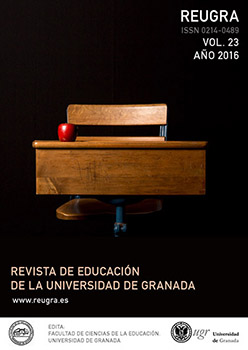Analysis of Empathy in Early Childhood Education: Study Based on Expression Through Drawing
Main Article Content
Abstract
In this paper we carry out an analysis of empathy in early childhood, from the own child’s point of view. For this a qualitative research approach based on the method of key informants was used.
Drawings were used as a tool for collection children’s perception of empathy because we consider it an ideal medium for children to freely express their ideas, thoughts and emotions.
Key informants were pre-schoolers, more specifically secondary cycle pupils in Childhood Education, of a public center of the province of Granada, Spain.
Our study concludes that children of four and five express empathic behaviors, which are able to recognize the feelings of others as well as take the place of them, and even try to avoid their negative emotions.
From the educational point of view we consider necessary to study this ability in childhood, as the pre-primary education is the key to the development of these variables.



